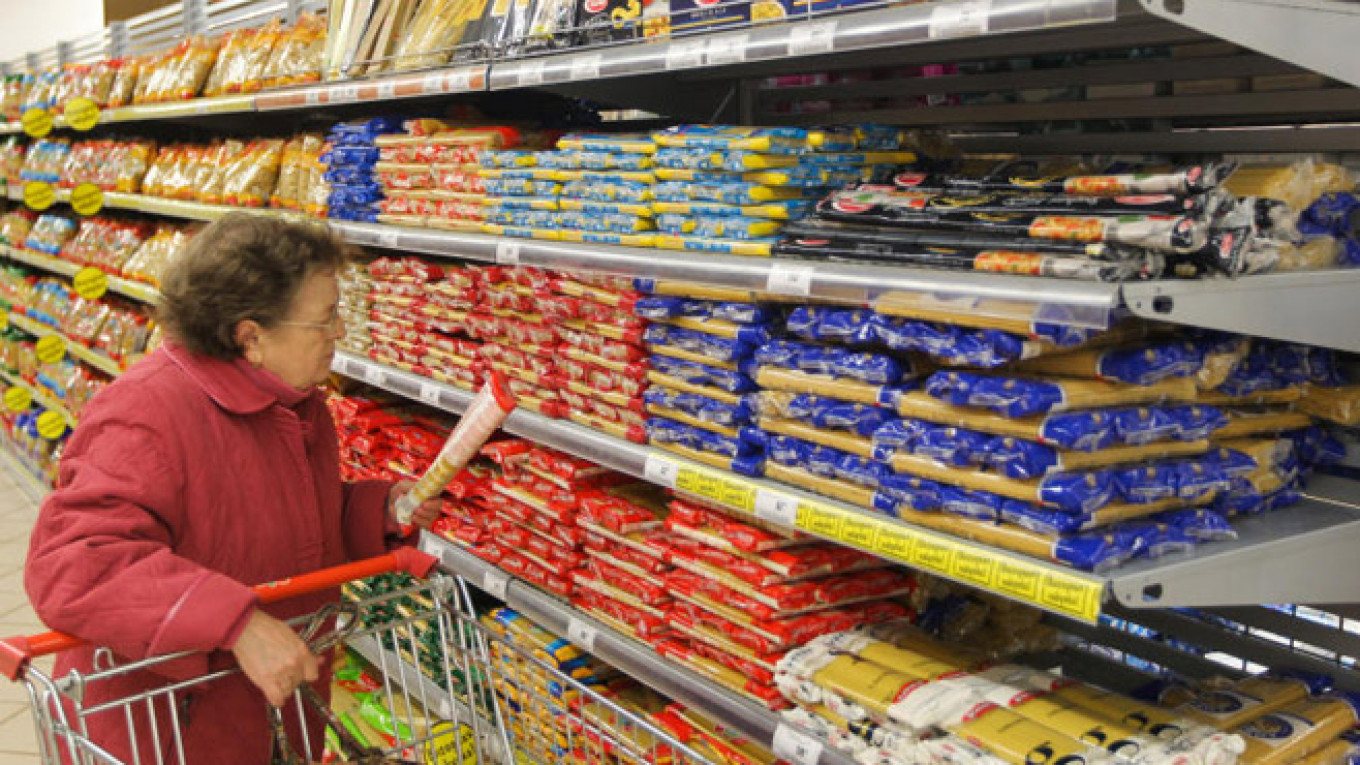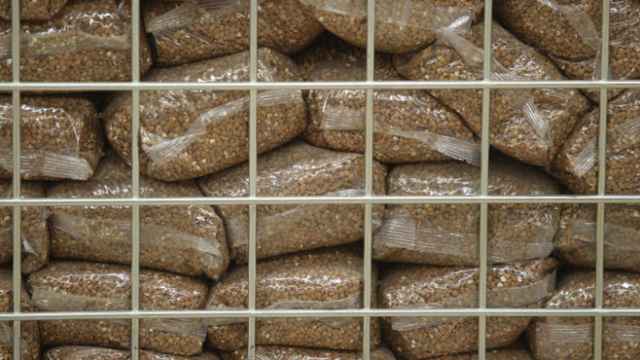The prices of rice and pasta are expected to increase dramatically this winter in Russia, further propelling already high inflation, news agency Interfax reported Thursday.
From October to November, the price of hard flour increased more than 70 percent, Andrei Dribny, CEO of Extra-M, one of Russia's largest pasta producers, told Interfax. The retail price of pasta, which is made from hard flour, could soon rise 20 to 25 percent, he said.
The price of rice has also climbed from about 26,000 rubles ($550) a ton in October to 33,000 rubles ($700) a ton this month, the report said, citing data from grain tracker ProZerno.
Higher flour prices are the consequence of a poor harvest and the decline of the ruble, which has led to a significant increase in the amount of flour exported, Dribny said.
The rising price of staple food groups will only further accelerate inflation, which rose to 8.3 percent in October compared with the same period last year. Economic Development Minister Alexei Ulyukayev said this week that inflation will hit 9 percent for the year.
The prices of apples, sunflower oil and buckwheat have also risen steeply in recent months. Buckwheat, a traditional staple of Russian cuisine, spiked to an average of about 45 rubles ($0.96) per kilogram on Wednesday, with prices increasing up to 80 percent in some regions.
A Message from The Moscow Times:
Dear readers,
We are facing unprecedented challenges. Russia's Prosecutor General's Office has designated The Moscow Times as an "undesirable" organization, criminalizing our work and putting our staff at risk of prosecution. This follows our earlier unjust labeling as a "foreign agent."
These actions are direct attempts to silence independent journalism in Russia. The authorities claim our work "discredits the decisions of the Russian leadership." We see things differently: we strive to provide accurate, unbiased reporting on Russia.
We, the journalists of The Moscow Times, refuse to be silenced. But to continue our work, we need your help.
Your support, no matter how small, makes a world of difference. If you can, please support us monthly starting from just $2. It's quick to set up, and every contribution makes a significant impact.
By supporting The Moscow Times, you're defending open, independent journalism in the face of repression. Thank you for standing with us.
Remind me later.






